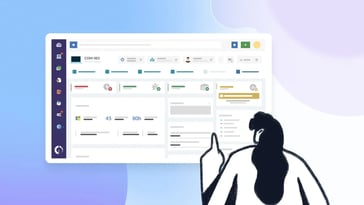Finding the right Help desk software for a small business might seem challenging at first, but it's worth the effort. Small businesses increasingly rely on efficient IT systems to manage customer support, track incidents, and ensure smooth workflows.
91% of service teams note that having a help desk system increases their productivity. If you’re searching for software that fits your organization’s size, budget, and unique needs, this guide is for you.
Below, we’ll discuss service desk software options for SMBs, their importance, and the key features to consider before choosing one.

What is Help desk software for small businesses?
Help desk software (also known as help desk software) is a tool for centralizing and managing support requests, whether from customers or internal teams. Its primary purpose is to manage support tickets, ensuring smooth communication and efficient resolution of issues ranging from IT problems to customer requests and operational concerns.
Essentially, the function of service desk software is similar regardless of the size of the organization — it streamlines processes and enhances support capabilities. However, small business owners often realize that they face particular challenges that require solutions tailored to their scale.
Small organizations often require software that isn’t just easy to implement and cost-effective but also customizable to their specific needs. As Imane Adel, cited by Forbes, puts it, SMBs often find ‘one size fits all’ solutions inadequate, as they need customizable, scalable solutions and dedicated support tailored to their unique challenges.
Tools for smaller businesses should focus on simplicity, scalability, and value without unnecessary complexities. The right service desk software adapts to a small business’s operations, whether it’s managing IT tickets, responding to customer queries, or organizing internal tasks. Beyond simplicity and scalability, these solutions focus on delivering value by addressing the specific workflows and pain points of smaller teams.
With software designed with these priorities in mind, small businesses can enhance efficiency, streamline communication, and provide better support for their customers and employees alike.
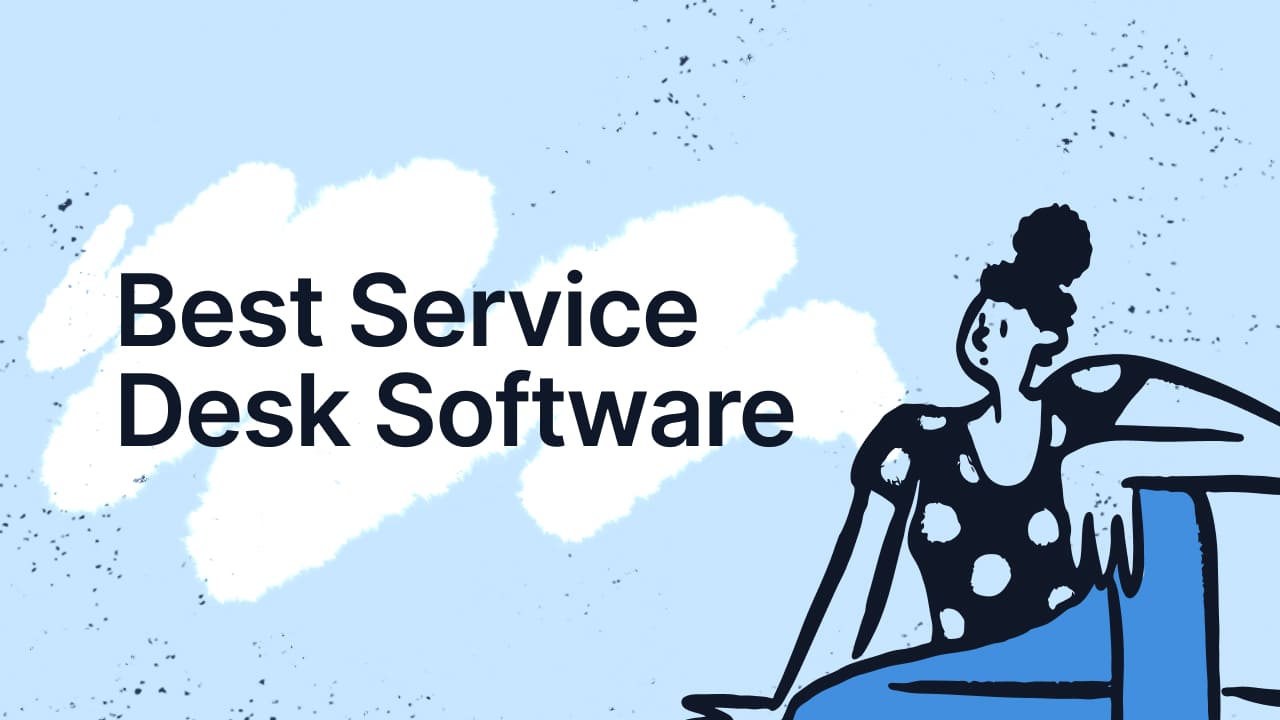
10 top Help Desk software options for small businesses
Here’s a curated list of service desk software tools that cater specifically to the needs of small businesses:
1. InvGate Service Management
InvGate Service Management is designed to simplify support for businesses of all sizes, including small enterprises. It’s flexible and can adapt to multiple industries, such as IT, retail, education, and healthcare. Whether you need to manage internal support for your employees or external support for your customers, InvGate, as a complete ESM solution, has you covered.
Key features:
- Self-service options to empower your users to resolve issues independently.
- Custom automations with our visual workflow editor to streamline repetitive tasks.
- AI-powered features that help agents solve tickets quicker.
- Integrations with third-party tools to fit your current stack.
- Dashboards and custom reports to monitor performance and spot improvement opportunities.

InvGate Service Management offers easy implementation and a 30-day free trial. Additionally, the learning curve for support team members is simple, ensuring a smooth transition and quick adoption.
2. Freshdesk
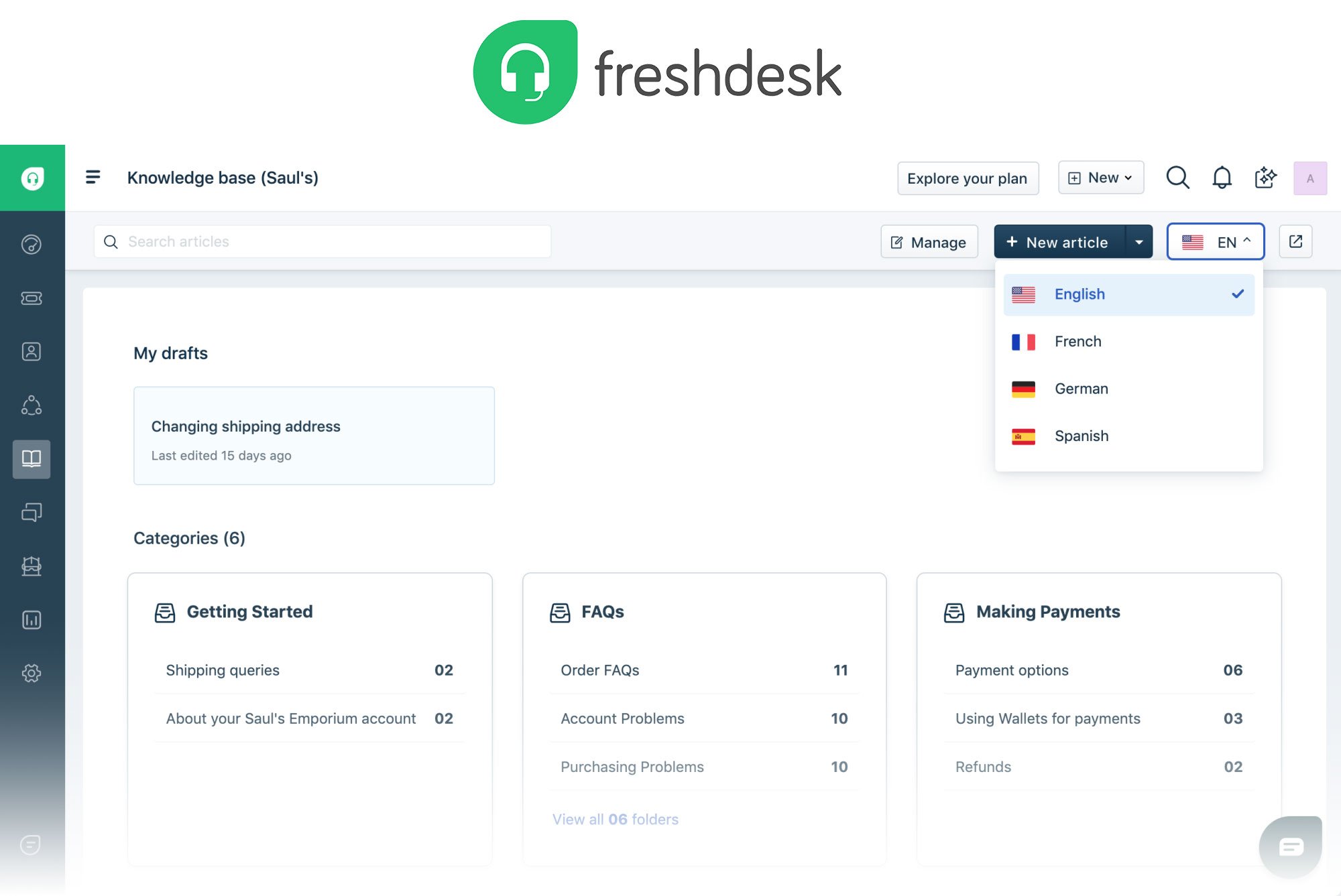
Freshdesk is a popular choice for small businesses looking for a flexible, cloud-based solution. It offers robust customer support tools and customizable workflows.
Key features:
- Omnichannel support, including email, chat, and phone.
- Intuitive interface with easy setup.
- Scalable plans starting at free and expanding as your business grows.
3. Zendesk Support Suite
 Known for its adaptability, Zendesk is a trusted help desk software tool for managing customer service operations. Though larger companies use it, it offers plans tailored for smaller teams.
Known for its adaptability, Zendesk is a trusted help desk software tool for managing customer service operations. Though larger companies use it, it offers plans tailored for smaller teams.
Key features:
- Multiple communication channels including Slack, Freshservice chatbot, or MS Teams.
- Advanced reporting capabilities to track performance.
- Scalable pricing plans, suitable for small companies.
4. Zoho Desk
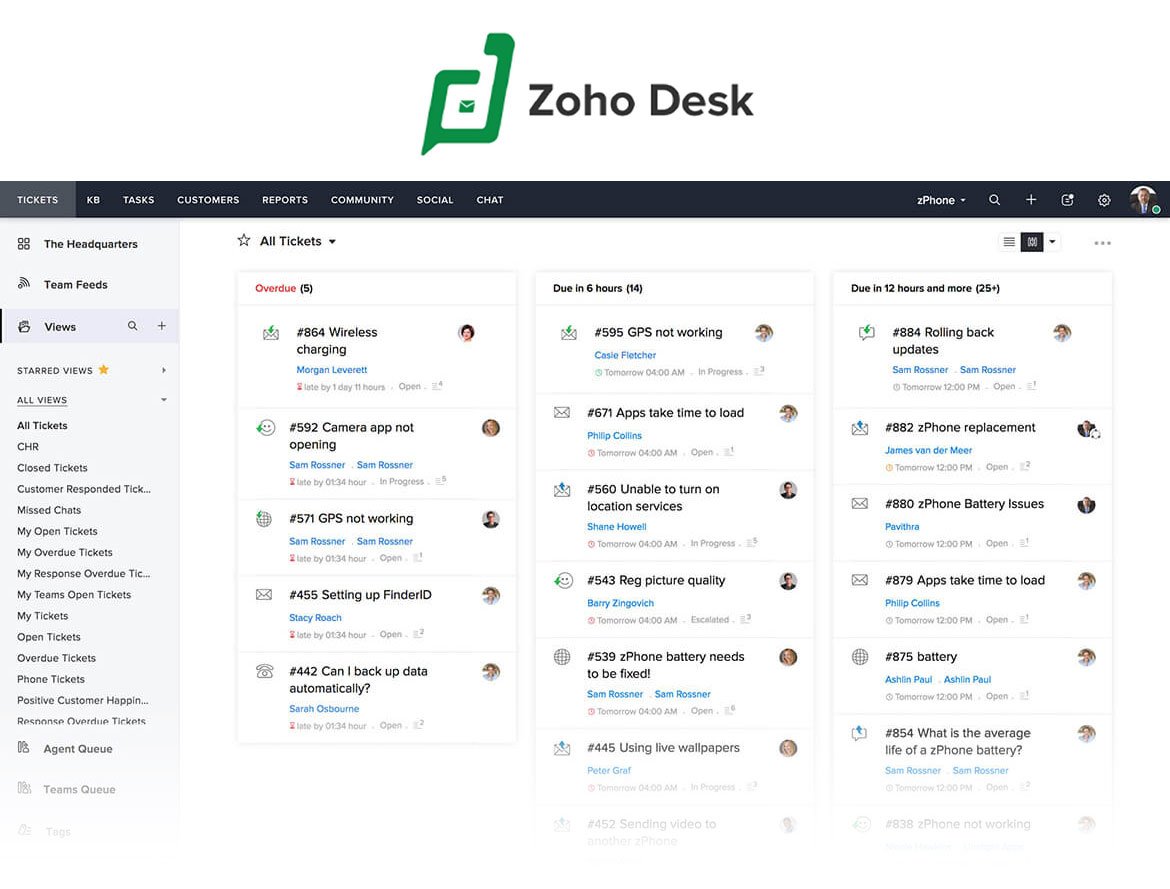 Zoho Desk offers an affordable, feature-rich option for businesses already using Zoho’s ecosystem.
Zoho Desk offers an affordable, feature-rich option for businesses already using Zoho’s ecosystem.
Key features:
- AI-driven tools to analyze customer sentiment.
- Affordable pricing and integration with other Zoho apps.
- Highly customizable interface.
5. SysAid
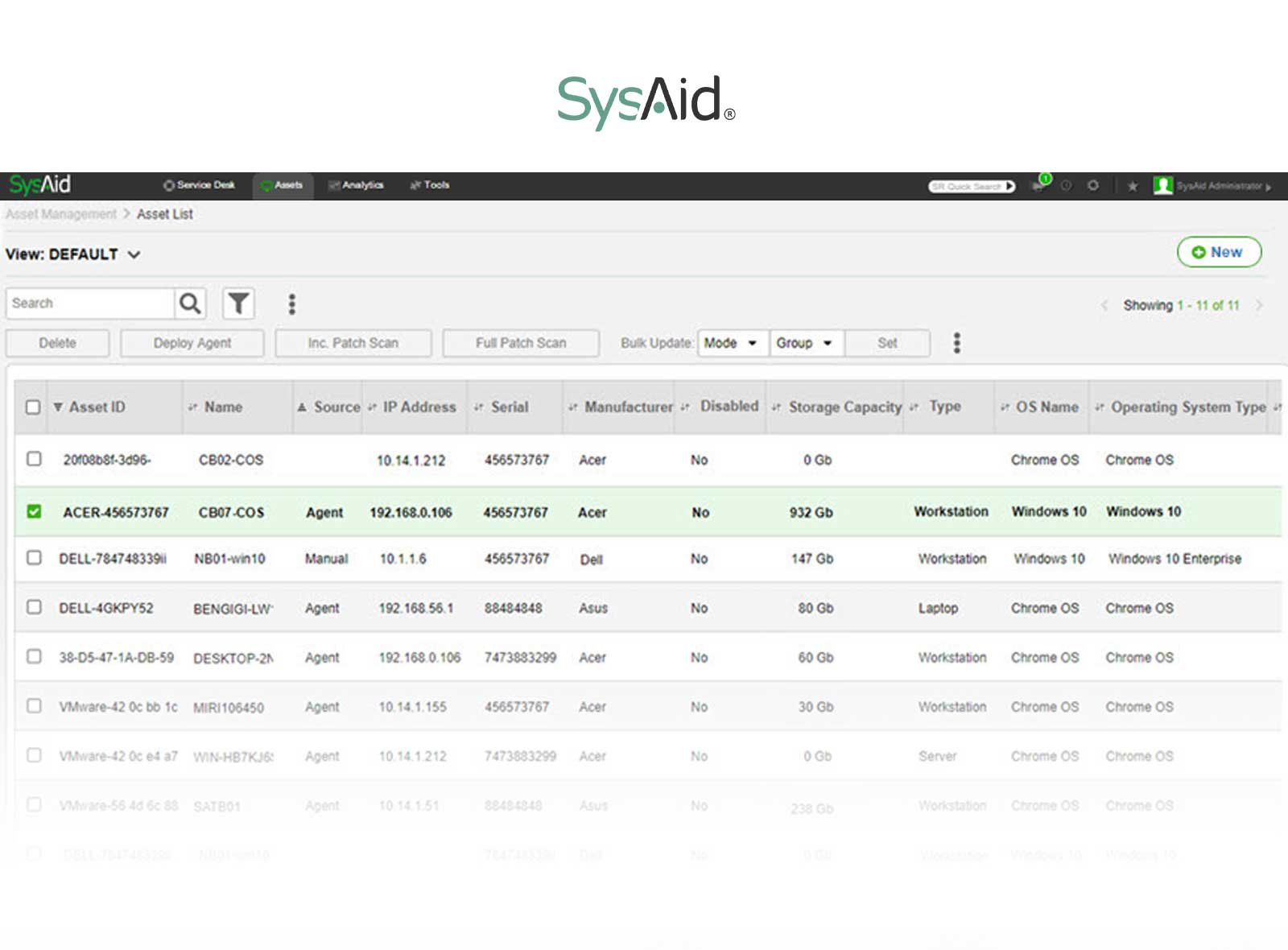 SysAid offers IT-focused tools designed to address technical support needs for small organizations.
SysAid offers IT-focused tools designed to address technical support needs for small organizations.
Key features:
- Built-in IT Asset Management.
- Easy-to-configure workflows tailored for small teams.
- Cloud and on-premise options for flexibility.
6. HappyFox
HappyFox is a good choice for small companies looking for simplicity. It offers centralized ticket management from multiple channels and a suite of features to streamline customer support.
Key features:
- Centralized ticketing across email, chat, and social media.
- Automation workflows to reduce repetitive tasks.
- Self-service portals and detailed reporting tools.
7. ManageEngine ServiceDesk Plus
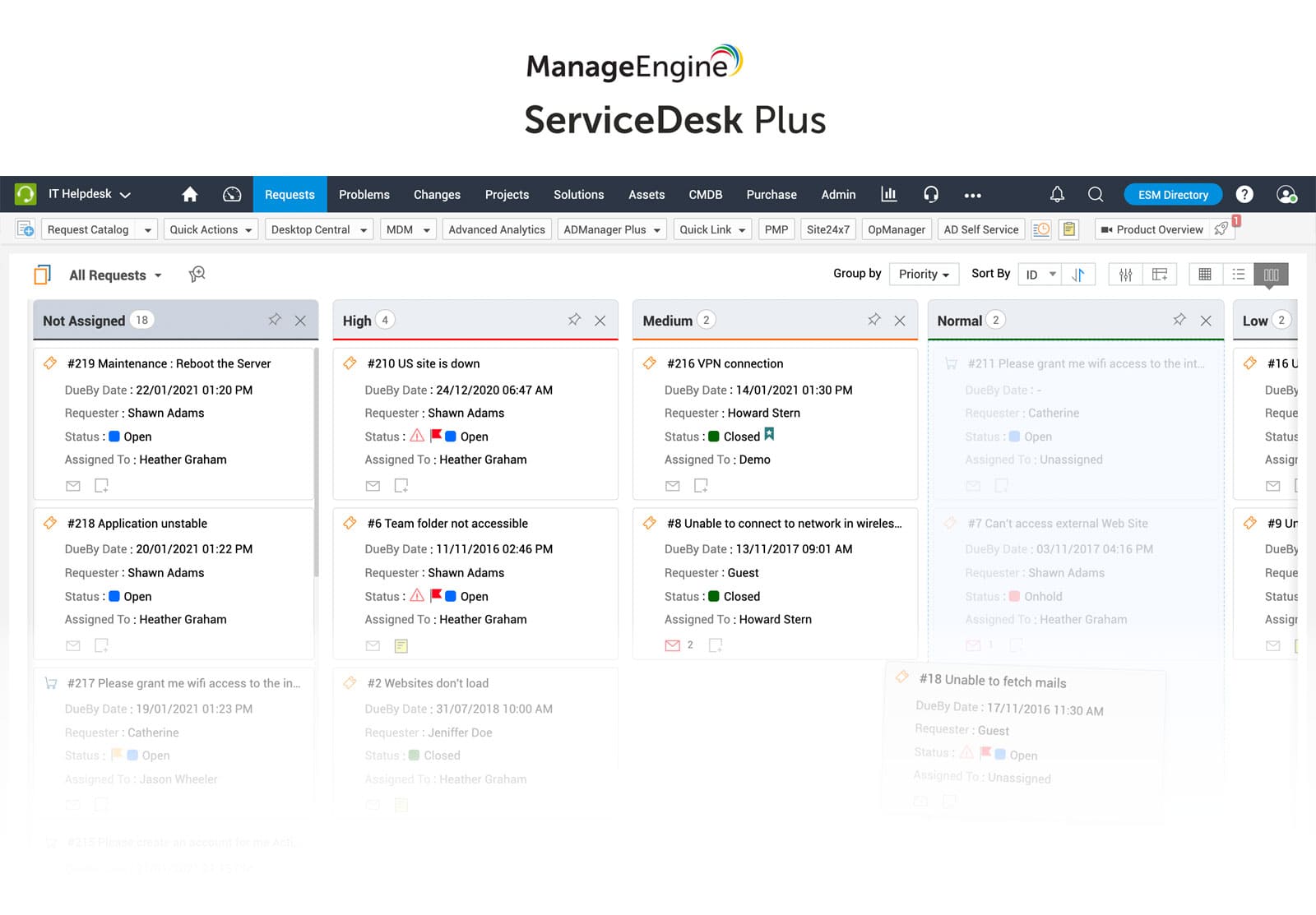
ManageEngine ServiceDesk Plus is a versatile IT help desk solution that caters to small and medium-sized businesses. It offers a range of ITIL-aligned features and customization options, making it a solid choice for teams looking to scale their IT support capabilities.
Key features:
- Comprehensive incident, problem, and change management.
- Integrated asset management for better resource tracking.
- Customizable workflows and automation to streamline IT processes.
8. Help Scout
Help Scout focuses on delivering a streamlined, collaborative experience for customer support teams in smaller businesses. It’s easy to use but may lack more advanced or in-depth features.
Key features:
- Shared inbox for team collaboration on customer inquiries.
- Integrated live chat and knowledge base functionality.
- Affordable pricing plans tailored for smaller teams.
9- Hornbill
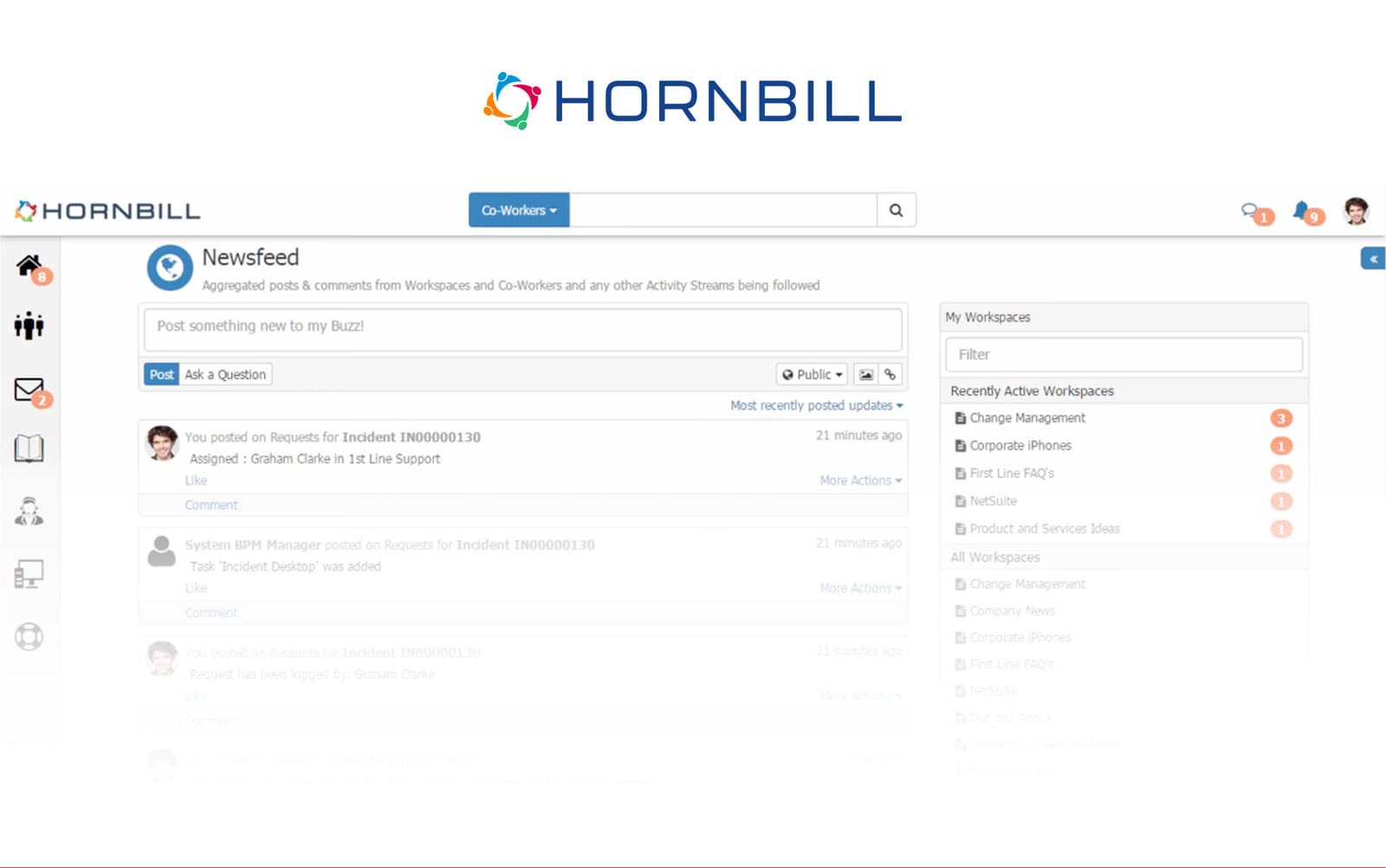
Hornbill provides a modern, cloud-based service desk platform that emphasizes collaboration and simplicity. It’s particularly well-suited for smaller teams that value efficient workflows and ease of use. While Hornbill is packed with collaboration features, some small businesses may find its integrations with third-party tools slightly limited compared to competitors.
Key features:
- Collaborative tools like shared boards and real-time updates.
- Intuitive interface with minimal setup requirements.
- Codeless configuration.
10. HaloITSM
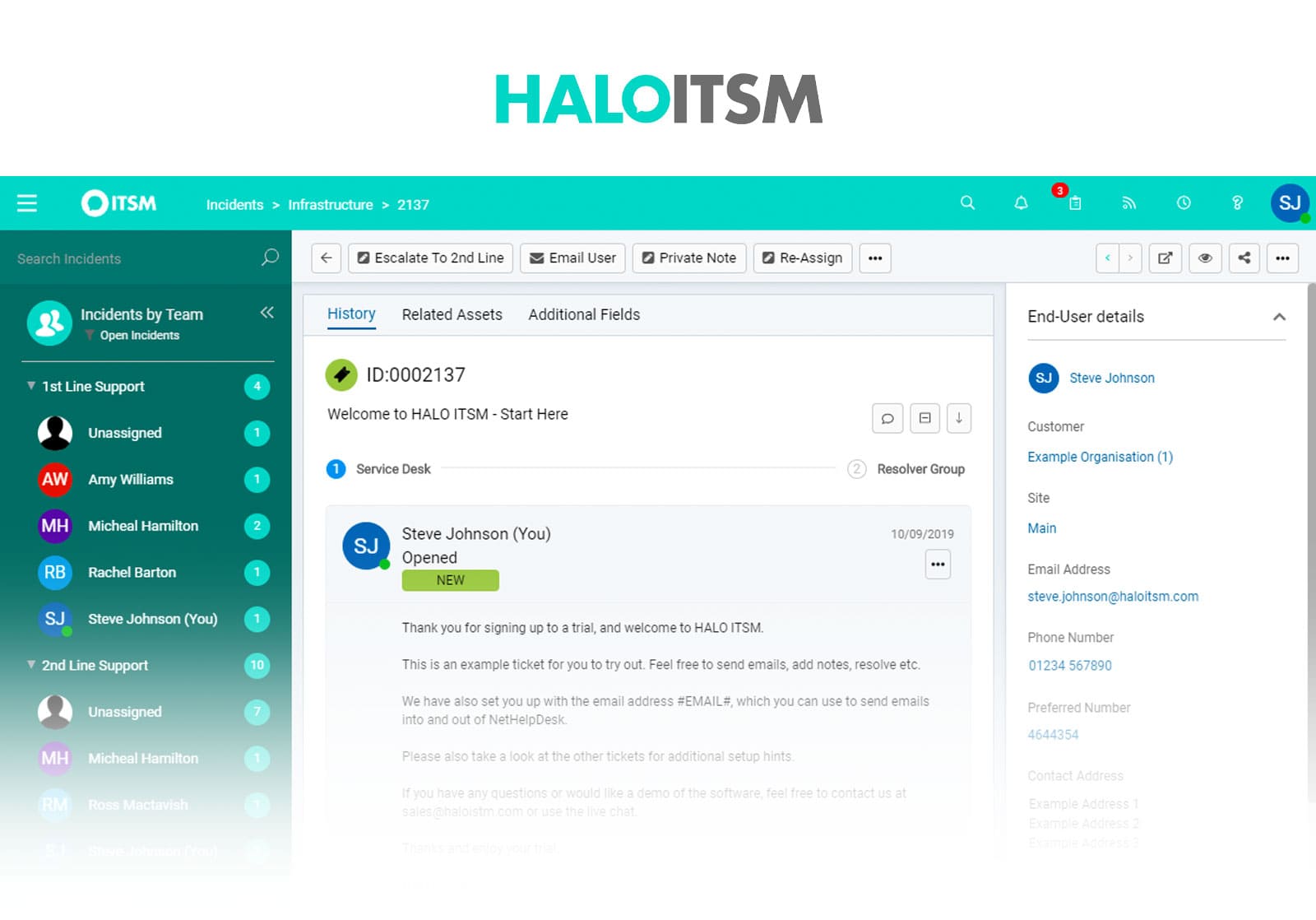
HaloITSM, formerly known as NetHelpDesk, has evolved significantly over the years. The rebranding in 2020 signaled a move from a simple help desk solution to a more robust IT Service Management (ITSM) platform designed to address the demands of modern businesses. It's available as a SaaS or on-premises solution.
Key features:
- User-friendly self-service portal.
- Comprehensive ticketing system.
- Integrated CMDB (Configuration Management Database)
Why do small organizations need help desk software?
Small businesses face unique challenges in maintaining efficient workflows and meeting customer expectations. Without a centralized tool, teams might struggle to keep track of support requests, resolve issues promptly, and analyze performance.
Service desk software helps:
- Organize support requests: A ticketing system ensures no issue is missed or delayed.
- Improve team productivity: Automating repetitive tasks allows staff to focus on critical concerns.
- Enhance customer satisfaction: Quick response times lead to happier users and stronger customer relationships.
- Support scalability: As businesses grow, the software adapts to increased demand.
Moreover, service desk software goes beyond ticketing. It also enables:
- Knowledge Management: Create and maintain a comprehensive knowledge base to empower both support agents and end-users with quick access to solutions and best practices.
- Self-service: Provide users with a self-service portal where they can find answers, submit requests, and track the status of their tickets, reducing the workload on your support team.

Features to look for in service desk software for small businesses
Now, you might wonder, how do I know if I'm in front of the right help desk software? What should I be looking for?
First of all, you'll focus on help desk features that match your business’s scale and priorities. While less of a concern if you go down the SaaS route, double-check key functionality and how it could work in your environment. Consider how the tool manages virtual environments and cloud-based services and integrates data from multiple sources.
Here are some essential features to look for:
-
1. Intuitive user interface: Small teams often lack the time for extensive training. Choose software with a straightforward design that’s easy for employees to adopt.
-
2. Affordable pricing: Budget constraints are common for small businesses. Look for flexible pricing plans that scale with your needs, avoiding tools with hidden costs.
-
3. Scalability: The software should grow with your business. Features like additional integrations and higher ticket limits should be accessible as your company expands.
-
4. Automation tools: Automating repetitive processes such as ticket assignments and status updates reduces workload and minimizes errors.
-
5. Reporting and analytics: Insight into metrics like resolution time, ticket volume, and team performance is essential for identifying areas of improvement.
-
6. Multi-channel support: Customers and employees may submit requests through email, chat, or social media. Omnichannel support consolidates these channels for streamlined management.
-
7. Third-party integrations: Small businesses often rely on tools like Slack, Microsoft Teams, or CRM platforms. Ensure the service desk software integrates seamlessly with these.
-
8. Service Level Agreement Management: Look for software that makes it easy to define, track, and report on SLAs.
After you make your choice, it's time to plan a quick and efficient implementation process. Check out our ITSM implementation checklist to speed up migration.
To sum up
Every company, big or small, needs to focus on delivering service, and service desk software is the way to start. Without the right software, managing user and customer interactions can quickly become overwhelming and inefficient.
Remember, the best help desk software is the one that adapts to your needs. Explore your options until you find a solution that aligns with your goals and budget.
Before we go, here are some extra tips:
- Take advantage of free trials. Most service desk providers offer trial periods, allowing you to test features and ensure the software fits your workflow.
- Prioritize ease of use. Look for a solution your team can adopt quickly without extensive training.
- Pay attention to customer support. Reliable vendor support is crucial, especially for smaller teams without dedicated IT staff.
And of course, we invite you to InvGate Service Management today to experience it yourself! Ask for a 30-day free trial and see how it can transform your support operations.














